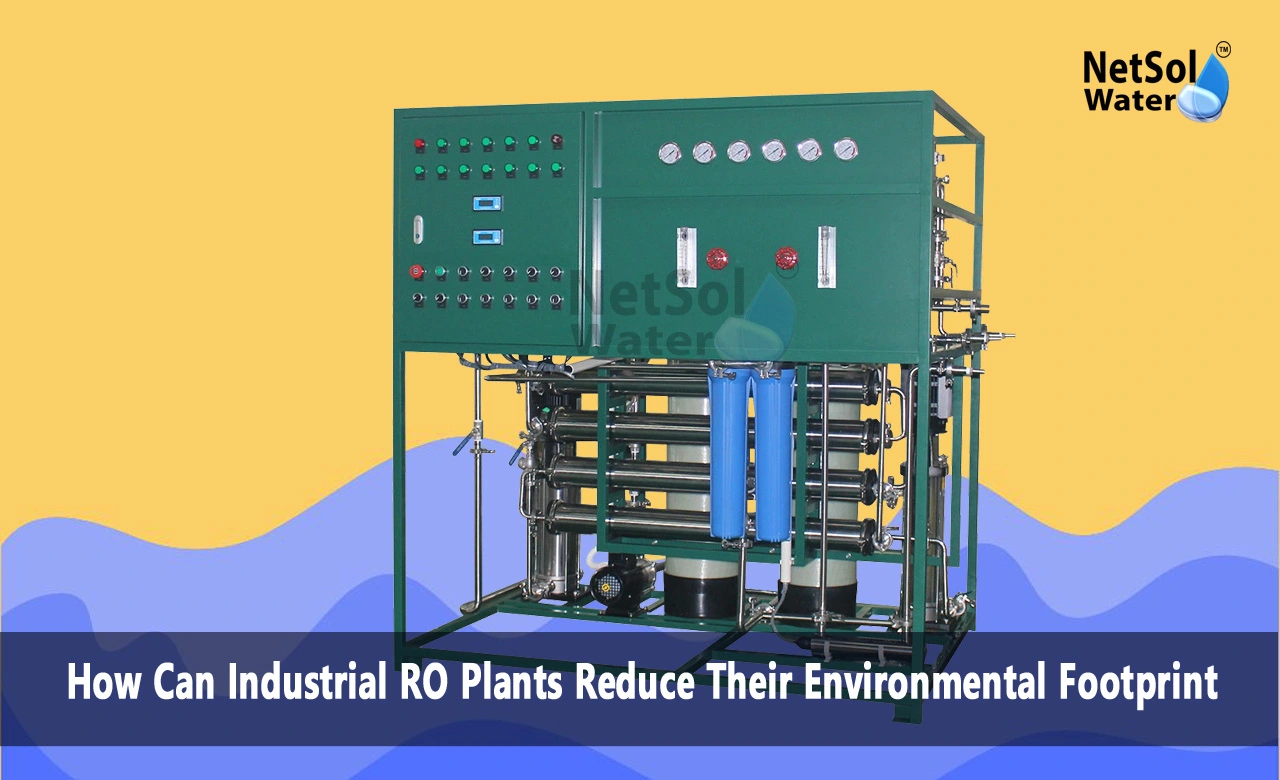How Can Industrial RO Plants Reduce Their Environmental Footprint?
In today's world, where people care more about the environment, industries are feeling the heat to lessen their impact on nature. One area where they can make a big difference is in how they clean water using reverse osmosis (RO). These RO plants are used in industries to purify water, but they can use up a lot of resources and harm the environment if not handled properly. In this blog, we'll look at ways these plants can be more eco-friendly.
Understanding Industrial RO Plants
Industrial RO plants are crucial for producing high-quality water for various industrial processes. They employ reverse osmosis, a process where water is forced through a semi-permeable membrane to remove impurities, contaminants, and dissolved solids. While this technology is effective in delivering clean water, its operation can consume significant energy and resources.
Energy Efficiency Measures
One of the primary environmental concerns associated with industrial RO plants is their energy consumption. These plants typically require substantial electricity to pressurize water and force it through the membrane. Implementing energy-efficient measures can significantly reduce their environmental impact:
1. Optimize Operating Parameters
Fine-tuning operating parameters such as pressure, flow rate, and temperature can improve energy efficiency without compromising water quality. Regular monitoring and adjustment of these parameters ensure optimal performance while minimizing energy consumption.
2. Utilize Energy Recovery Systems
Energy recovery devices, such as pressure exchangers or turbines, capture and reuse the energy from the brine stream to pressurize incoming feedwater. This not only reduces the overall energy demand but also lowers operational costs.
Sustainable Water Management
In addition to energy efficiency, industrial RO plants can adopt sustainable water management practices to further lessen their environmental footprint:
1. Minimize Wastewater Generation
RO plants produce a concentrated brine stream as a byproduct, which can pose disposal challenges and environmental risks if not managed properly. Implementing advanced treatment technologies like brine concentrators or evaporation ponds can minimize wastewater generation and facilitate resource recovery.
2. Embrace Water Reuse and Recycling
Instead of treating freshwater sources, industrial RO plants can utilize treated wastewater or reclaimed water for non-potable applications within the facility. This not only conserves freshwater resources but also reduces the burden on the RO system.
Material Selection and Lifecycle Analysis
The environmental impact of industrial RO plants extends beyond their operational phase. The selection of materials during construction and regular maintenance activities can influence their overall sustainability:
1. Choose Eco-Friendly Materials
Opting for sustainable materials with lower embodied energy and environmental footprint contributes to reducing the lifecycle impact of industrial RO plants. Additionally, prioritizing materials that are durable and recyclable enhances long-term sustainability.
2. Conduct Lifecycle Assessments
Performing lifecycle assessments helps evaluate the environmental impacts associated with the entire lifespan of industrial RO plants, from manufacturing and installation to operation and decommissioning. This holistic approach enables informed decision-making to minimize environmental consequences.
Stakeholder Engagement and Education
Effective management of industrial RO plants' environmental footprint requires collaboration and awareness among various stakeholders:
1. Employee Training and Awareness Programs
Educating plant operators and staff about the importance of environmental stewardship and best practices fosters a culture of sustainability within the organization. Training programs on energy conservation, waste reduction, and water management empower employees to contribute to environmental goals.
2. Community Outreach and Engagement
Engaging with local communities and stakeholders raises awareness about the environmental impact of industrial RO plants and fosters dialogue on mitigation strategies. Collaboration with neighboring industries, environmental organizations, and regulatory bodies promotes shared responsibility and collective action.
Regulatory Compliance and Continuous Improvement
Adherence to environmental regulations and continuous improvement initiatives are essential for industrial RO plants to minimize their environmental footprint:
1. Compliance with Environmental Standards
Ensuring compliance with relevant environmental regulations and standards establishes a baseline for environmental performance and prevents potential environmental harm. Regular audits and monitoring help identify areas for improvement and address non-compliance issues promptly.
2. Implementing Environmental Management Systems
Adopting robust environmental management systems, such as ISO 14001, provides a framework for systematic identification, management, and improvement of environmental aspects and impacts. These systems facilitate goal setting, performance measurement, and stakeholder engagement for sustainable operations.
Conclusion
Industrial RO plants play a crucial role in providing clean water for various industrial applications, but their operation can have significant environmental implications. By implementing energy efficiency measures, embracing sustainable water management practices, selecting eco-friendly materials, engaging stakeholders, and complying with regulations, these plants can reduce their environmental footprint. Through collective efforts and continuous improvement, industrial RO plants can contribute to a more sustainable future for water resource management.
By adopting these strategies, industrial RO plants can enhance their environmental performance while fulfilling their operational objectives. Through innovation, collaboration, and responsible stewardship, we can ensure that industrial RO plants operate in harmony with the environment, safeguarding precious water resources for generations to come.
Do you need an advice or assistance on selecting the best water and waste water treatment unit? We have solutions for all your problems!
Let us know your problem, our experts will make sure that it goes away.
For an assistance or related query,
Call on +91-965-060-8473 Or write us at enquiry@netsolwater.com



